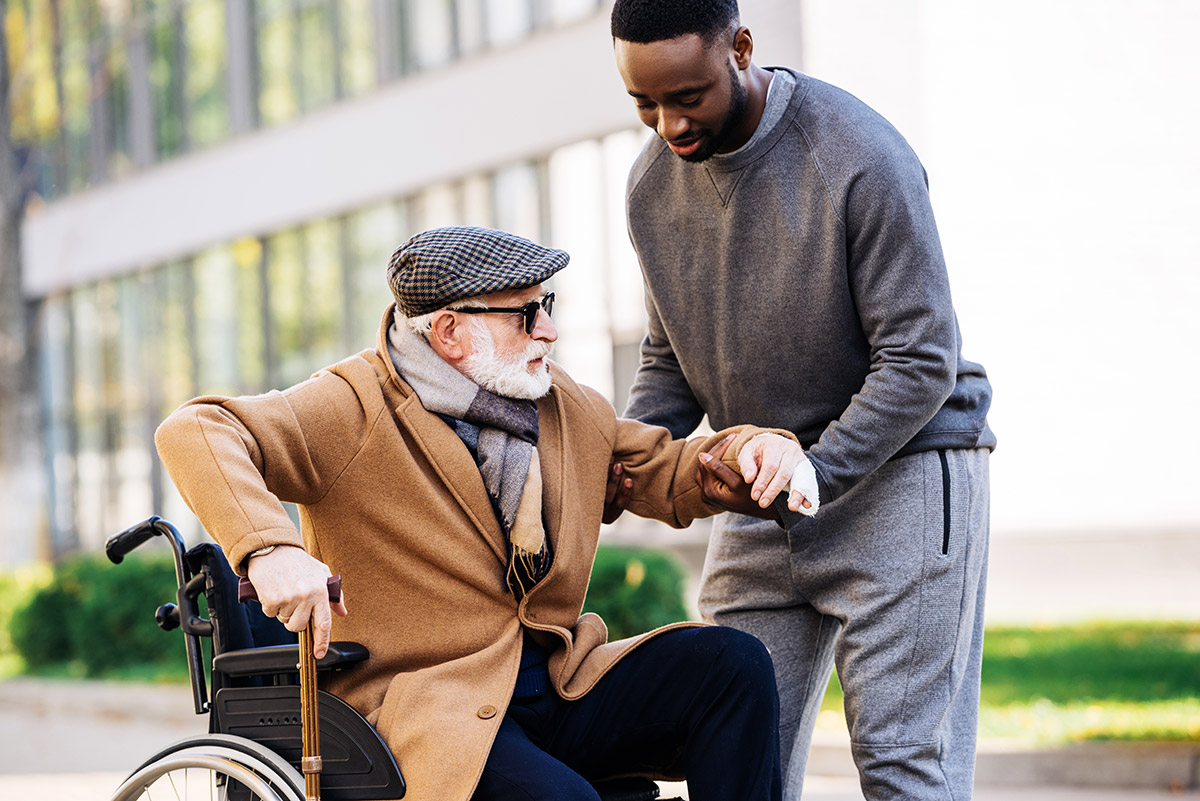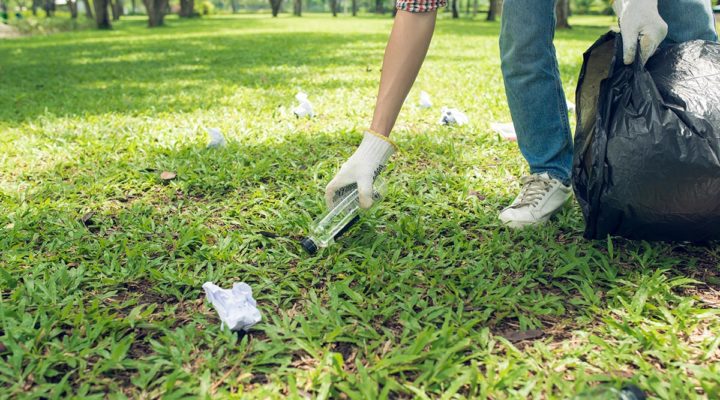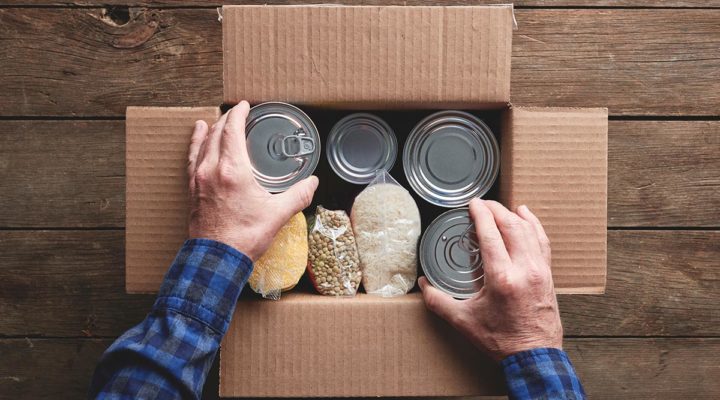Want to Live Longer? The Unexpected Health Benefits of Kindness

Few things in life feel better than performing a random act of kindness. Whether it’s holding the door open for a stranger, donating money to charity or paying a friend an unexpected compliment, doing something worthwhile for others delivers a feel-good buzz that even the strongest barista-made coffee can’t compete with.
With the rise of online trolling and the #BeKind movement in recent years, being compassionate to others feels like a matter of public duty – one that we should all take steps to undertake.
And the message is everywhere too; social media is awash with thousands of inspirational quotes and phrases reminding us of the power of kindness. While it might seem like a fluffy concept, scientific study has shown us that being altruistic isn’t just beneficial for society – it could have fairly tangible benefits on our physical and mental wellbeing too.
Yep, small acts of kindness can go a long way, and as they’re free, they’re one of the most inexpensive ways we can look after our health. Here, we take a deep dive into the wellness-boosting benefits of doing good…
Kindness can make us happier
When we’re overloaded at work and in need of a pick-me-up, we might think about raiding the kitchen treat drawer or spoiling ourselves with some retail therapy – but research shows that giving your time to others might be the most effective way to release tension.
A 2015 study published in the journal Sage put the theory to the test. The study authors asked 77 people to keep a log of their mental health, noting their daily mood and stress levels over the course of several weeks. The study authors also asked participants to jot down how many acts of kindness they completed each day.
Unsurprisingly, the researchers found that when people encountered stress in their day-to-day lives, it had a marked negative effect on their mood. However, when they took the time to engage in prosocial behaviours, their moods were less powerfully affected by stress, and they typically rated their mental health as higher on the whole too.

Kindness may help you to live longer
Genetics have a part to play in life expectancy, but environmental factors can also influence whether we live a long and healthy life. We know that eating a healthy diet, exercising and limiting alcohol are sensible ways to protect our physical health, but did you know that being kind might boost your time on the planet too?
Kindness triggers two vital chemicals in our brain: serotonin and oxytocin. Also known as ‘the love hormone’, oxytocin promotes feelings of intimacy and closeness with others. Serotonin, on the other hand, is the neurotransmitter responsible for regulating our mood, happiness and wellbeing. It’s sometimes known as ‘the happy hormone’. If we’re depleted, we’re more likely to suffer from mental health issues like anxiety and depression.
These feel-good chemicals flood our body and give us a temporary high, mitigating the negative effects of stress. “Kindness can have benefits to your heart, as oxytocin lowers blood pressure and contributes to overall health of the organ,” says Dr Ioannis Liakas.
“It can also increase your sense of connectivity with others too,” he continues. “This can directly reduce loneliness and enhance your relationships in general.” Social isolation is more of a health predictor than we first thought. Aside from being uncomfortable to live through, loneliness has been estimated to shorten a person’s life by 15 years, equivalent in impact to being obese or smoking 15 cigarettes per day.
In fact, a 2010 study into social relationships and mortality found that people with a tight group of friends had a predicted 50% increased chance of living a longer life than those who don’t.
Kindness may reduce pain
Physical pain is never fun to deal with. Left unchecked, it can linger for weeks or months, interfering with our quality of life and causing us distress. A 2019 study found that kindness could be an alternative remedy for the symptoms, as regions of the brain that react to pain appear to be deactivated when we’re in the process of giving.
Participants who committed to donating money to charity were less sensitive to pain than those who gave nothing. And the more worthwhile people thought their donation was? The less pain they felt on the whole.
Kindness can boost your self-esteem
Self-esteem can feel like a vague buzzword, but it’s an important part of the wellbeing puzzle. It’s essentially the way we value ourselves. In the age of social media, it’s never been more pressing as it can be really easy to fall into the comparison trap and pick fault with who we are.
If you want to have a kinder relationship with yourself, one thing that researchers believe might help is doing charitable deeds for others. A study published in the Journal of Adolescence studied 681 teenagers, looking at how self-esteem was associated with acts of kindness toward strangers, friends and family. The researchers found that all good deeds – performed for strangers or friends and family – had a positive impact on self-esteem.
But it was the acts of kindness towards strangers, such as helping someone with heavy bags or giving directions, that had a greater positive impact on self-esteem than any other, no matter whether the act was big or small.
Acts of kindness you can try at home
Even the busiest person with little time for self-care can enjoy the health-boosting benefits of kindness. We all have the power to be kind – to ourselves, to others and to the planet. Here are just a few small ideas to get you started:

Take on a fitness challenge for charity.
No matter your fitness level, taking on an active challenge for a worthwhile cause can give us a renewed sense of purpose. Whether it’s a gentle sponsored walk or a full marathon effort, commit to a fitness challenge in 2023 and raise money for a cause that matters to you.

Collect litter.
We can create cleaner parks, beaches and streets if we all make a small effort to safely collect litter in our area. Removing plastic waste from our streets makes our neighbourhoods nicer for both ourselves and others who live there.
Send a text to a friend who might be lonely.
According to the Red Cross, around nine million people in the UK say they feel lonely. It takes just two minutes to check-in with a friend. If you want to boost the kindness factor, you could pay them a compliment or let them know that you’re thinking of them.

Donate to your local food bank.
Over 90% of the food distributed by food banks in the UK’s Trussell Trust network is donated by the public. Donating food during the current cost living crisis is really easy too. There are lots of collection points in supermarkets across the country so you can simply add a few extra tins and provisions to your basket and drop them off during your weekly shop.
Pay for a stranger’s coffee.
If you usually start your morning with a visit to the local coffee shop, why not offer to pick up a cuppa for the person behind you in the queue? It’s a small act of kindness that only costs a few pounds, but can make a huge difference to someone’s day.


















